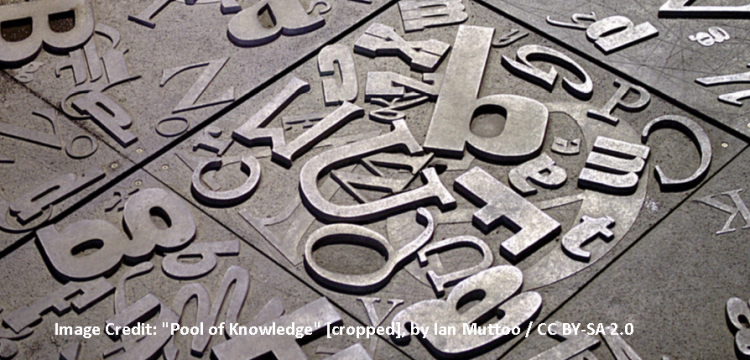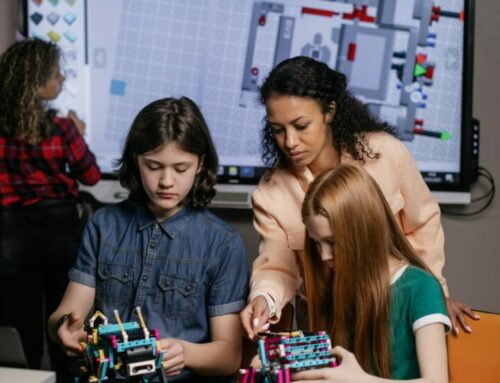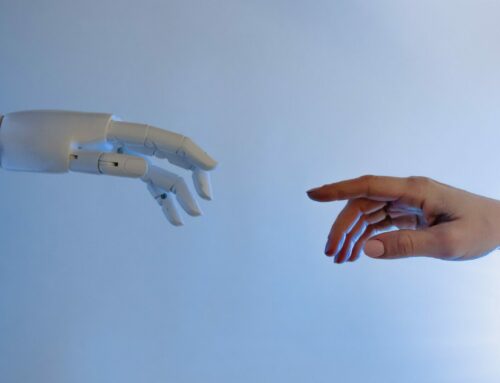Building a Global Knowledge Society through Universal Lifelong Education
Patrick Blessinger
International HETL Association and St. John’s University
An explosion of new information is created every minute and, aided by the continuous development of globally connected information and communication technologies, this creation of new information continues to grow exponentially. In an age of increasing ubiquity of information and knowledge, and through the ongoing development of MOOCs and OERs for instance, it has become increasingly easier for people anywhere in the world to acquire high quality knowledge on demand and for free. These and other phenomena continue to drive the development of the emerging global knowledge society.
Data vs Information vs Knowledge
Although the terms data, information, and knowledge are often used interchangeably, they have distinct meanings. In information theory, the primary characteristic that distinguishes these concepts from each other is the degree and quality of meaning and processing applied to each one. For instance, data, in the elementary form of numbers, letters, words and other types of basic communicative symbols, represents a simple form of meaning and the basic units of human communication.
As such, this first-level of communicative meaning-making, in and of itself, does not provide much meaning, but data is nonetheless very important because it provides the basic building blocks for human communication. Notwithstanding the fact there is a wide diversity of languages which use different symbols and rules through which to convey meaning, this rather straightforward definition will suffice for the purpose of understanding the basics of how data, information, and knowledge are related.
Information is data that has been aggregated, processed, and organized in some meaningful way. In short, information is a set of related data. For instance, when letters are aggregated into words and phrases, and those words and phrases are aggregated into sentences and paragraphs, and so on, the data has been converted into a more meaningful form of communication called information. This second level of communicative meaning-making is more beneficial to people because it conveys deeper and more multi-faceted levels of meaning, say in the form of a dialogue or story or other narrative, for instance. Data is needed to build information and information, in turn, is needed to build knowledge.
External information is retrieved and processed by the brain via the senses and is then transformed into knowledge via cognitive and affective processes. Knowledge, therefore, is information that has been aggregated, processed, and organized in relation to other information on the same topic. In short, knowledge is a repository (e.g., the brain, a textbook, a journal, an encyclopedia) of related theories, models, frameworks, principles, themes, concepts, etc. on a particular topic. Knowledge, as the name implies, is the sum total of what is known on a given topic.
This third level of communicative meaning-making is much more meaningful to people because it conveys deeper, more nuanced, and more comprehensive levels of meaning on a given topic. Just as there are different types of data and information, there are different types of knowledge such as factual knowledge, conceptual knowledge, procedural knowledge, and meta-cognitive knowledge, as described, for instance, in the revised Bloom’s taxonomy.
One of the most important contributions of Bloom’s taxonomy is that it shows concretely the foundational nature of knowledge in human intelligence – everything we think and do, and all higher learning skills such as analyzing, evaluating and creating new knowledge, depends on acquiring a meaningful and comprehensive knowledge base, which in turn has major implications for how educational systems and curricula are structured and implemented. These ideas, and how they relate to higher education systems around the world, are explored in the book, Meaning-Centered Education.
The emerging global knowledge society
Many societies are moving quickly from a post-industrial information society, characterized by the widespread digitization and dissemination of information and its wide-ranging political, social, and economic impacts, to a knowledge economy, where the growth of an economy is based substantially on the development of human capital rather than the means of production, to a knowledge society.
Given the relationship between information and knowledge described previously, it is no surprise that many modern societies are now transitioning through these three stages of development. Each stage encompasses, not replaces, the stage before it resulting in an increasingly hyper-connected knowledge based and knowledge driven society.
UNESCO defines a knowledge society as a society that promotes cultural diversity, equal access to education, universal access to knowledge, and freedom of expression. In other words, a knowledge society is one where knowledge is used in the service of sustainable development of humanity. As such, a knowledge society is a society based on the principals espoused in the universal declarations of human rights, cultural diversity, and democracy.
In a knowledge society, the accelerating rate of knowledge production leads to increasing amounts of technological innovation that, in turn, leads to the proliferation of more knowledge, thus creating a virtuous cycle of knowledge production. This cycle is further enhanced by the mutually reinforcing processes of globalization and internationalization, thus creating a global knowledge society – a society where knowing how to produce new knowledge and apply it in creative, meaningful, and sustainable ways has become increasingly important to human development and the protection of the planet.
It should not come as a surprise, therefore, that higher education, as a knowledge producer, has become a major global force in this brave new global knowledge society. This new way in which the global community is becoming organized underscores the importance of lifelong education for all. While the move towards a global knowledge society and the move towards lifelong learning as a human right and lifelong education as an equalizer should be viewed as positive developments in making education for all a more concrete reality, educational leaders and policy makers should not lose sight of the fact that the world still faces many challenges.
For instance, there remains a very unequal distribution of education and knowledge around the world. Although life circumstances for many people around the world have improved dramatically over the past few centuries, many people are still challenged with oppression, poverty, and illiteracy, among other challenges. According to the World Bank, “almost half the world – over three billion people – live on less than $2.50 a day” and according to UNICEF, “nearly a billion people entered the 21st century unable to read a book or sign their names.”
The paradigm shift towards an inclusive mindset
The principles embraced in the universal declarations of human rights, cultural diversity, and democracy are now converging in the current movement to democratize global higher education, wherein unnecessary and arbitrary barriers of all types and at all levels are being reduced. In conclusion, the emerging global knowledge society, as reflected in the democratization of knowledge and universal lifelong education for all, represents a much needed move away from an exclusive and elitist mindset rooted in power and privilege claims and towards a more inclusive and universal mindset rooted in human rights and social justice claims.
Patrick Blessinger is founder of the International Higher Education Teaching and Learning Association and an adjunct associate professor of education at St John’s University in New York City, USA. He is co-editor with John P Anchan of Democratizing Higher Education: International comparative perspectives.
Suggested Citation:
Blessinger, P. (2015). Building a Global Knowledge Society through Universal Lifelong Education, Higher Education Tomorrow, Volume 2, Article 8, https://www.patrickblessinger.com/building-a-global-knowledge-society-through-universal-lifelong-education
Or
Blessinger, P. (2015). Building a Global Knowledge Society through Universal Lifelong Education, Global Access to Postsecondary Education, Issue 5.
Copyright © [2015] Patrick Blessinger
Disclaimer
Opinions expressed in this article are those of the author, and as such, do not necessarily represent the position(s) of other professionals or any institution.




